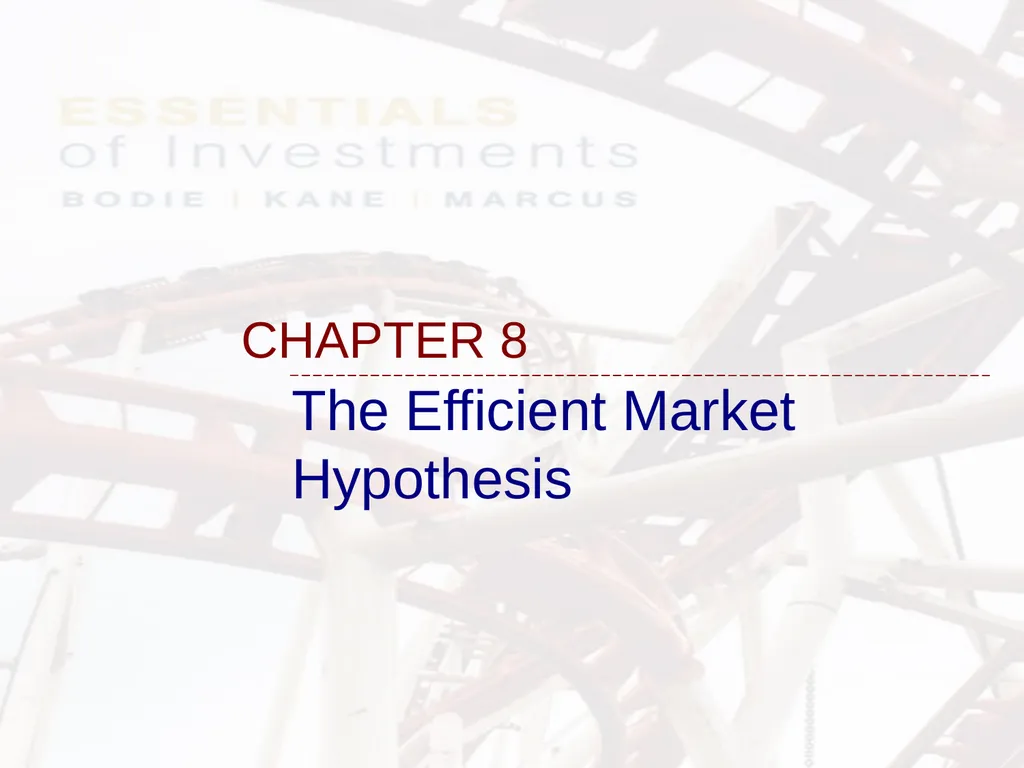
Author : mitsue-stanley | Published Date : 2025-05-17
Description: The Efficient Market Hypothesis CHAPTER 8 Introduce the Efficient Market Hypothesis (EMH) (效率市場假說) Discuss the practicability of technical and fundamental analyses (技術與基本分析的可行性) and the active asset management (主動式資產管理) under differentDownload Presentation The PPT/PDF document "" is the property of its rightful owner. Permission is granted to download and print the materials on this website for personal, non-commercial use only, and to display it on your personal computer provided you do not modify the materials and that you retain all copyright notices contained in the materials. By downloading content from our website, you accept the terms of this agreement.
Here is the link to download the presentation.
"The Efficient Market Hypothesis CHAPTER 8"The content belongs to its owner. You may download and print it for personal use, without modification, and keep all copyright notices. By downloading, you agree to these terms.













